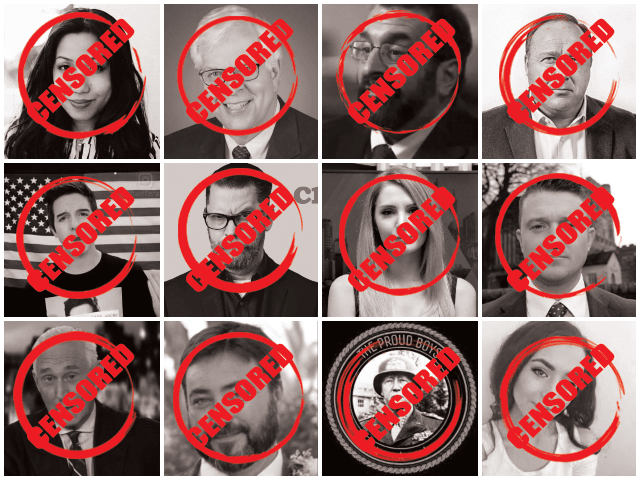In an appearance on Fox News Channel’s Tucker Carlson Tonight Monday evening, former Clinton pollster Mark Penn warned censorship by Big Tech could significantly influence elections.
A partial transcript follows:
TUCKER CARLSON: So, I’m fascinated by the Alex Jones story because it was Alex Jones, almost no conservatives rose to his defense because the idea was ‘Alex Jones, ew, yuck.’ But, it’s not really about Alex Jones, is it? It’s about the idea that companies can make it impossible for your voice to be heard. Is that a precedent we should feel comfortable with?
MARK PENN: I think you have to be worried about big tech becoming big brother—
CARLSON: Yes
PENN: —Because this used to be neutral platforms that said we are open to free expression, that’s our core value, and now they said, not so much. With particularly Facebook hiring 10,000 new sensors on top of another 10,000 and having roving censoring box looking for content. Look, I never read Alex Jones but here somebody with millions of followers, publicly accountable for his speech operating within Supreme Court standards,yanked from media. That’s a surprise to me. That’s is the platforms are no longer as open as they presented themselves to be.
CARLSON: And it’s not just him. There are many like him who’ve been yanked like him — less known, but still. This has political implications. You ran and managed campaigns for so long, this must of occurred. A lot of our political debate takes place on social media platforms. So, if they clamp down on one side of the debate, why wouldn’t that influence an election’s outcome?
PENN: Obviously it could have a big influence on elections — increasingly because where people turn for their news is that they look at the news feeds that are run by the major social media companies. They are more powerful than any T.V. station. More powerful than Fox—
CARLSON:—Yes, they are.
PENN: Because of the amount of time people spend on them, and it’s a funnel. If you’re not at the top, you don’t get seen. In the past, they had some neutral ways of doing this, but now they’ve increasingly applied still more mysterious algorithms, plus individual censors. Remember, they are private platforms, they say, so they’re not actually subject to the First Amendment, unless we get some legislation that says, ‘Free Speech is an Internet right.’

COMMENTS
Please let us know if you're having issues with commenting.